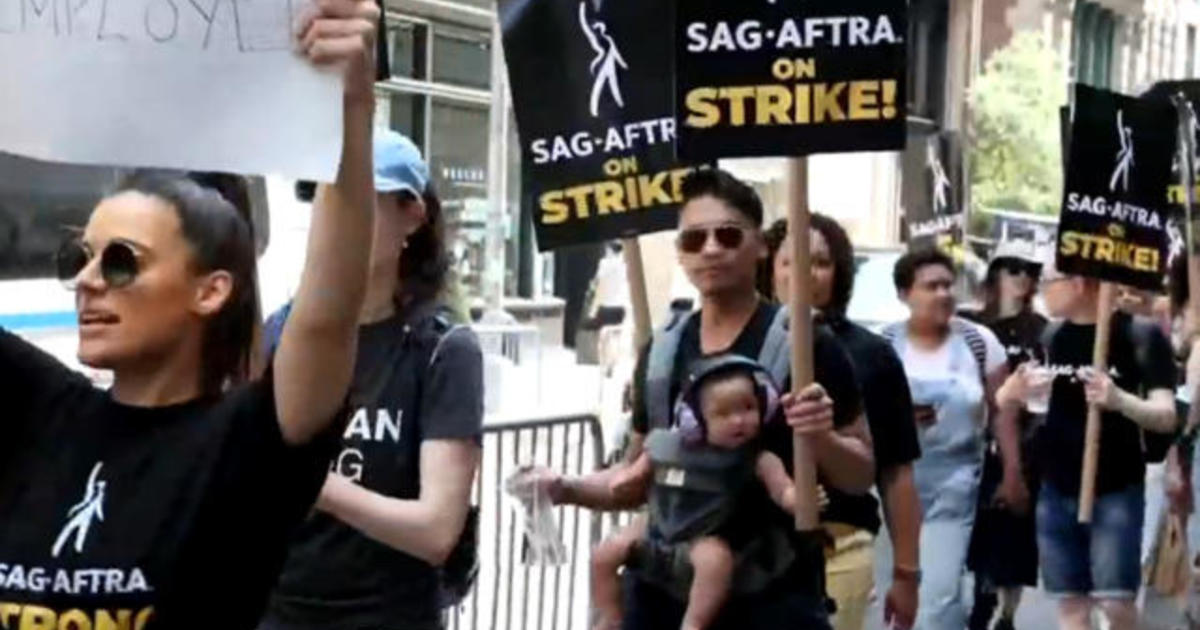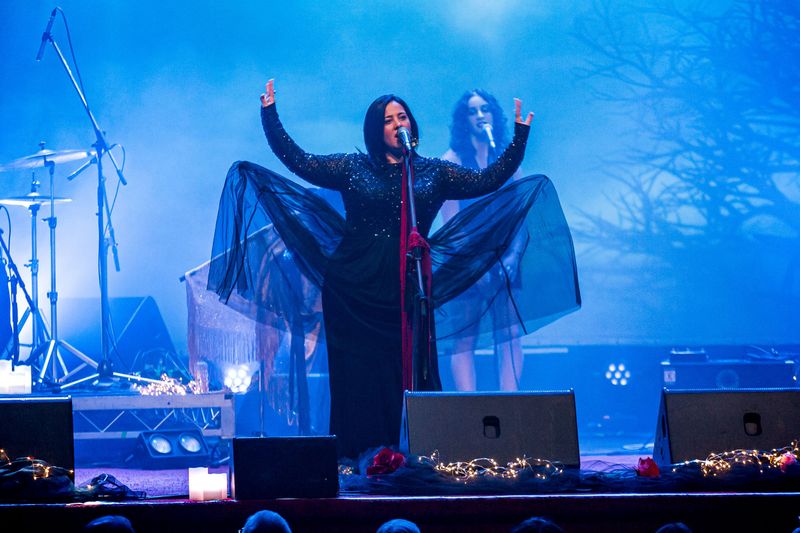Actors Join Writers' Strike: Hollywood Faces Unprecedented Production Halt

Table of Contents
The SAG-AFTRA Strike: Actors' Demands and Concerns
The SAG-AFTRA strike, occurring alongside the ongoing WGA strike, amplifies the concerns of actors regarding fair compensation, the rise of AI, and unsafe working conditions.
Fair Compensation in the Streaming Era
The rise of streaming platforms has dramatically altered the landscape of actor compensation. Traditional residual payments, once a significant source of income for actors, have been significantly reduced or eliminated in many streaming deals.
- Netflix, Amazon Prime, and other streaming services often offer flat fees for actors, unlike traditional television and film which provided residuals for subsequent airings and home video releases.
- Data shows a significant pay disparity between streaming and traditional media. Actors working on streaming projects often earn less for the same amount of work compared to their counterparts in traditional productions.
- SAG-AFTRA is demanding a restructuring of compensation models to ensure actors receive fair and equitable payments in the streaming era, including increased residuals and a greater share of streaming profits.
Concerns About AI and its Impact on Actors' Work
The increasing use of AI in film and television poses a significant threat to actors' livelihoods. AI-generated imagery and deepfake technology can potentially replace actors, diminishing their roles and job security.
- AI is being used to create digital doubles of actors, potentially reducing the need for actors on set.
- AI is also being explored to generate dialogue and even entire performances, raising concerns about the future of acting as a profession.
- SAG-AFTRA is demanding strong safeguards to protect actors' likenesses and prevent the unauthorized use of AI to replace human actors. They are pushing for transparency and fair compensation when AI is utilized in production.
Working Conditions and Safety Concerns
Actors frequently face long working hours, inadequate rest periods, and sometimes unsafe working conditions on film and television sets.
- Examples include insufficient breaks, unsafe stunts, and harassment on set.
- SAG-AFTRA is demanding stricter regulations to improve working conditions, ensure adequate rest periods, and establish robust safety protocols. They are fighting for a safer and more equitable working environment for all actors.
The Writers' Strike: Ongoing Issues and Overlapping Concerns
The WGA strike, which preceded the actors' strike, highlights similar concerns regarding fair compensation, the impact of streaming, and the protection of creative workers' rights.
Minimum Staffing Levels and Fair Wages for Writers
The WGA contends that reduced staffing levels negatively impact the quality of scripts and working conditions for writers.
- Reduced writing teams lead to rushed scripts and overworked writers.
- The WGA demands minimum staffing levels on productions to ensure quality and fair working conditions. They are also pushing for improved wages and benefits that reflect the value of their creative contributions.
Streamlining Residuals and Protecting Writer's Rights
Writers face many of the same compensation issues as actors in the streaming era, with diminished or nonexistent residuals impacting their income.
- The complexities of streaming deals often leave writers with significantly less compensation than they would have received under traditional models.
- The WGA demands fairer residual payments and stronger protections for writers' intellectual property rights in the streaming environment.
The Overlap of Issues: Shared Concerns between Actors and Writers
The "Actors Join Writers' Strike" underscores a shared struggle between actors and writers. Both groups are grappling with the impact of streaming, the rise of AI, and the exploitation of creative workers.
- Fair compensation in the streaming era is a major concern for both.
- The threat of AI replacing human talent is a shared fear.
- Both unions are fighting for better working conditions and improved labor practices within the entertainment industry.
The Impact of the Double Strike on Hollywood Production
The combined effect of the WGA and SAG-AFTRA strikes is bringing Hollywood to a standstill.
Production Shutdowns and Economic Consequences
The dual strike has led to widespread production shutdowns, resulting in significant financial losses and job losses across various sectors.
- Numerous film and television productions have been postponed or canceled indefinitely.
- The economic impact extends beyond studios and actors to crew members, caterers, and numerous other professionals who depend on the industry.
- Estimates suggest billions of dollars in economic losses are accumulating as the strike continues.
Potential Long-Term Effects on the Entertainment Industry
This unprecedented production halt may lead to significant long-term changes within the entertainment industry.
- The strike could push for reforms in compensation models, leading to more equitable pay structures for actors and writers.
- The industry might be forced to re-evaluate its reliance on AI and implement stronger safeguards to protect creative workers.
- This could also lead to a more collaborative relationship between studios and labor unions, ensuring a sustainable future for the industry.
Conclusion: Actors Join Writers' Strike: A Turning Point for Hollywood?
The "Actors Join Writers' Strike" represents a crucial moment in the history of Hollywood. Both actors and writers are demanding fair compensation, improved working conditions, and safeguards against the threats posed by AI. The widespread production shutdown is causing significant economic consequences and forcing a necessary conversation about fair labor practices within the entertainment industry. Stay updated on the Actors Join Writers' Strike and its impact on the future of Hollywood. Learn how you can support the fight for fair wages and working conditions in the entertainment industry by following updates from SAG-AFTRA and WGA and participating in discussions advocating for fair labor practices.

Featured Posts
-
 Kentucky Derby 2025 Your Guide To Online Streaming Pricing And Availability
May 04, 2025
Kentucky Derby 2025 Your Guide To Online Streaming Pricing And Availability
May 04, 2025 -
 Kentucky Derby 2024 A Look At Churchill Downs Pre Race Renovations
May 04, 2025
Kentucky Derby 2024 A Look At Churchill Downs Pre Race Renovations
May 04, 2025 -
 Bloom Fronts Seventh Wonders Fleetwood Mac Show Wa Tour
May 04, 2025
Bloom Fronts Seventh Wonders Fleetwood Mac Show Wa Tour
May 04, 2025 -
 Ufc 314 Volkanovski Vs Lopes Fight Card Breakdown
May 04, 2025
Ufc 314 Volkanovski Vs Lopes Fight Card Breakdown
May 04, 2025 -
 Brian Tee Returns To Chicago Med Season 10 Episode 14
May 04, 2025
Brian Tee Returns To Chicago Med Season 10 Episode 14
May 04, 2025
